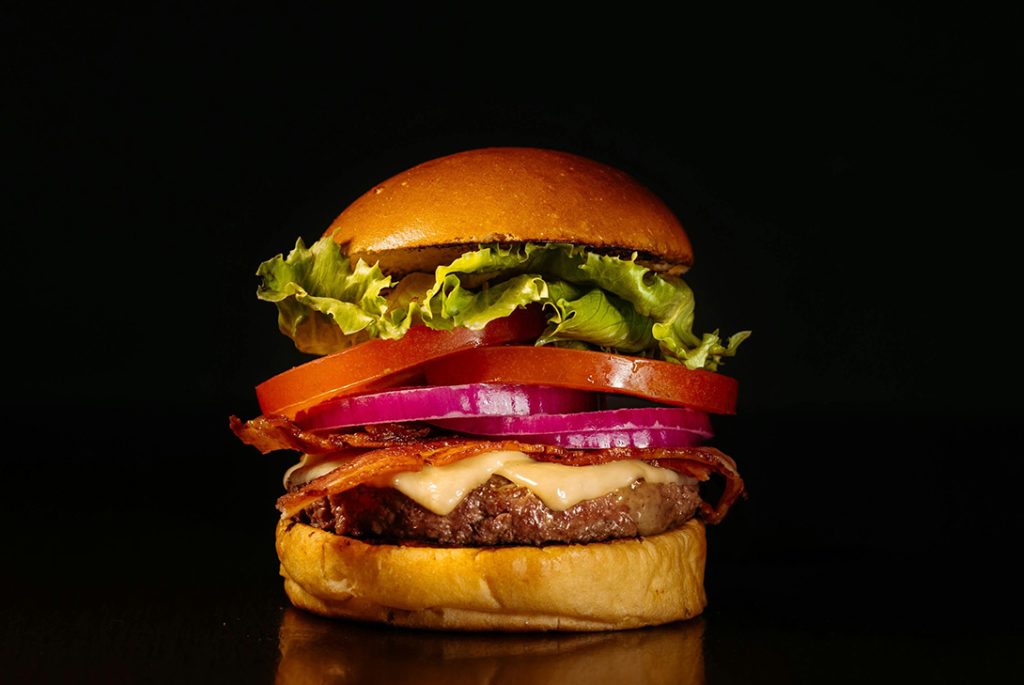How Long Are Burgers Good in the Fridge
August 23, 2025
Understanding Burger Shelf Life
If you’ve ever opened your fridge a few days after making burgers and wondered, “Is this still safe to eat?”—you’re not alone. Burgers, like other meat products, have a limited lifespan in the fridge. The freshness depends on when they were cooked, how they were stored, and the overall temperature conditions.
A good rule of thumb:
- Raw burgers: 1–2 days in the fridge
- Cooked burgers: 3–4 days in the fridge
Knowing these timeframes is crucial for avoiding foodborne illness and enjoying burgers at their best taste and texture.
Freshly Cooked Burgers vs. Raw Patties
Freshly cooked burgers have a longer fridge life compared to raw patties because cooking destroys most bacteria. However, once cooked, they begin to cool and are exposed to air, which means bacteria can slowly begin to grow again.
Raw patties are more sensitive to temperature changes. Even when refrigerated, bacteria like E. coli can still multiply slowly over time. That’s why raw burgers should ideally be cooked within 24–48 hours of refrigeration.
Factors That Affect Storage Time
Several key factors influence how long your burgers remain fresh:
- Fridge Temperature – Keep it at or below 40°F (4°C).
- Packaging Quality – Poor wrapping allows air in, leading to faster spoilage.
- Moisture Levels – High moisture accelerates bacterial growth and changes texture.
- Cross-Contamination – Storing burgers near raw meats or seafood increases contamination risks.

USDA Guidelines for Burger Storage
The United States Department of Agriculture (USDA) sets strict guidelines for how to handle and store burgers to keep them safe and delicious. While many people think of these rules as just a safety checklist, they also play a huge role in preserving that juicy, flavorful bite we all crave. Proper storage slows down bacterial growth, locks in moisture, and maintains the patty’s original taste for longer.
Safe Temperature Zones
The “danger zone” for food safety sits between 40°F and 140°F (4°C to 60°C). This is the range where bacteria like E. coli, Salmonella, and Listeria can multiply at lightning speed—sometimes doubling in number in just 20 minutes.
Burgers, whether raw or cooked, are especially vulnerable because ground beef has more surface area than whole cuts of meat, giving bacteria more places to hide and grow.
To stay out of the danger zone:
- Fridge Storage: Keep your refrigerator at 40°F (4°C) or colder. Use an appliance thermometer, since many home fridges run warmer than you think.
- Hot Holding: If burgers are being served buffet-style or at a party, they should be kept above 140°F (60°C). Chafing dishes, warming trays, or slow cookers can help maintain this safe temperature.
- Transporting Burgers: If you’re taking cooked burgers to a picnic or event, pack them in insulated containers with ice packs or hot packs, depending on their serving state.
By controlling temperatures, you’re essentially putting bacteria on “pause,” which means more time to enjoy your food without risking your health.
Recommended Time Limits
Even at the right temperature, burgers don’t last forever. The USDA’s recommended storage times are based on when bacterial growth reaches unsafe levels or when the meat starts losing quality.
- Raw Patties: Store in the fridge for 1–2 days. Ground meat has been handled and processed more than whole cuts, making it more susceptible to bacteria. If you can’t cook them within this window, freeze them immediately.
- Cooked Burgers: These last 3–4 days in the fridge. The cooking process kills most bacteria, but once cooled, they can still pick up new contaminants from the environment. Wrap them tightly in foil or store them in an airtight container to maintain moisture and flavor.
- Freezing as a Backup Plan: If you know you won’t eat your burgers in time, freezing is your best bet. Raw patties can last up to 4 months in the freezer, while cooked burgers maintain quality for about 3 months. Always thaw them in the fridge, never on the counter, to keep them safe.
By sticking to these time frames, you’re not just following food safety rules—you’re also ensuring your burgers stay flavorful and juicy until you’re ready to enjoy them.
Signs a Burger Has Gone Bad
No matter what the calendar says, use your senses to judge burger freshness.
Visual Changes
Spoiled burgers often develop:
- A greyish or greenish tint.
- Visible mold spots.
- Slimy or sticky surfaces.
Texture and Smell
If the patty feels unusually mushy or emits a sour, rancid, or ammonia-like odor, it’s time to toss it—no tasting required.
How to Store Burgers Properly
Proper storage is the secret to keeping burgers safe and delicious.
Cooling Before Refrigeration
After cooking, let burgers cool for 15–20 minutes before refrigerating. Placing them in the fridge while piping hot can raise the fridge’s internal temperature, putting other foods at risk.
Wrapping and Packaging Methods
- Wrap each burger tightly in plastic wrap or foil.
- Place the wrapped burger inside a resealable bag to reduce air exposure.
Using Airtight Containers
Airtight containers help maintain moisture, prevent fridge odors from seeping in, and extend freshness.
Extending Burger Freshness
The Role of the Freezer
If you can’t eat burgers within the fridge time limit:
- Cooked burgers: Up to 3 months in the freezer.
- Raw patties: Up to 4 months.
Always thaw burgers in the fridge, not on the counter—to prevent bacterial growth.
Labeling and Dating Stored Burgers
Use freezer labels or masking tape to mark the storage date. This helps you track freshness and avoid food waste.
How Long Can Burgers Sit Out Before Refrigeration?
The general rule:
- 2 hours max at room temperature.
- 1 hour max if the temperature is over 90°F.
Beyond this window, bacteria can multiply quickly, making the burger unsafe to eat.

Reheating Burgers Safely
Reheating isn’t just about making burgers warm—it’s about bringing them to a safe internal temperature of 165°F.
Microwave Method
Quick and convenient:
- Place the burger on a microwave-safe plate.
- Cover with a damp paper towel to retain moisture.
- Heat in 30-second intervals until it’s hot all the way through.
Oven or Stovetop Method
For better texture:
- Oven: Wrap in foil and heat at 350°F for about 10–15 minutes.
- Stovetop: Use medium heat, flipping occasionally, until warm in the center.
Common Mistakes in Burger Storage
Avoid these storage blunders:
- Leaving burgers uncovered in the fridge.
- Storing cooked burgers next to raw meat.
- Forgetting to check storage dates.
- Reheating the same burger multiple times.
The Science Behind Burger Spoilage
Bacteria like Salmonella and Listeria thrive in moist, protein-rich environments. Once meat is exposed to air, bacteria can settle and grow. While cooking kills most bacteria, toxins produced by some bacteria aren’t destroyed by heat—meaning proper storage is your best defense.
How Boss Bites – Burgers, Wraps & More Near Townewest Keeps Burgers Fresh
At Boss Bites – Burgers, Wraps & More, freshness isn’t negotiable. Burgers are:
- Prepared fresh daily.
- Stored at precise temperatures for safety.
- Packaged in airtight containers to lock in flavor.
Customers in Townewest know they’re getting a burger that’s not only delicious but also stored and served under strict safety standards.
Boss Bites – Burgers, Wraps & More Serving the Townewest Community and Beyond in Sugar Land
Boss Bites – Burgers, Wraps & More is dedicated to serving the diverse needs of the local community of Sugar Land, including individuals residing in neighborhoods like Townewest. With its convenient location near landmarks such as the Celestial Church of Christ, New Celestial Parish and major intersections like Kent Towne Ln. & Towneway Dr. (coordinates: 29.66844629535979, -95.62723740124652), we offer affordable burgers Sugar Land Tx services.
Get Affordable Burgers at Townewest Now
Navigate from Townewest to Boss Bites – Burgers, Wraps & More Now
Best Practices for Maximizing Burger Freshness
Burgers can be fridge-friendly for up to four days if cooked, but safe storage is key. Keep the fridge cold, wrap them well, and reheat properly. When in doubt, throw it out—no burger is worth a trip to the doctor.
FAQs
1. Can I eat a burger after 5 days in the fridge?
It’s risky. After 4 days, bacterial growth increases, and the quality drops sharply.
2. Is it better to freeze cooked or raw burgers?
Freezing raw patties often keeps texture better, but cooked burgers freeze fine if wrapped tightly.
3. How can I reheat a burger without drying it out?
Use the oven wrapped in foil or the microwave with a damp paper towel.
4. Can I store burgers with toppings on them?
It’s best to store patties separately—toppings can cause sogginess and shorten shelf life.
5. Why does my burger smell bad after just two days?
It might have been close to spoiling before refrigeration, or your fridge temperature may be too high.
Craving a Burger? Find Our Truck!
Check our location & grab a bite today!
or Contact Us at
(346) 622-9642









